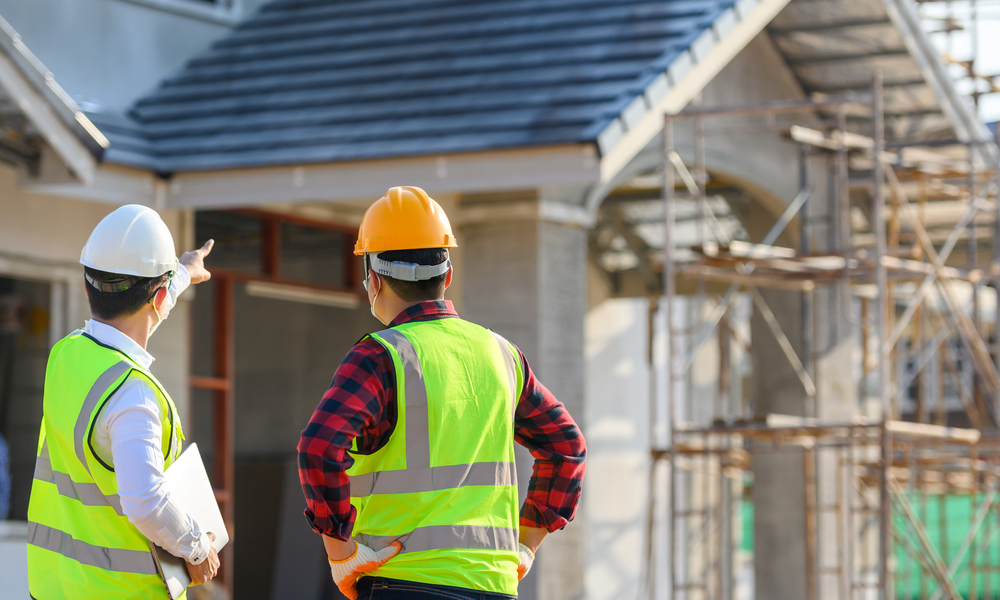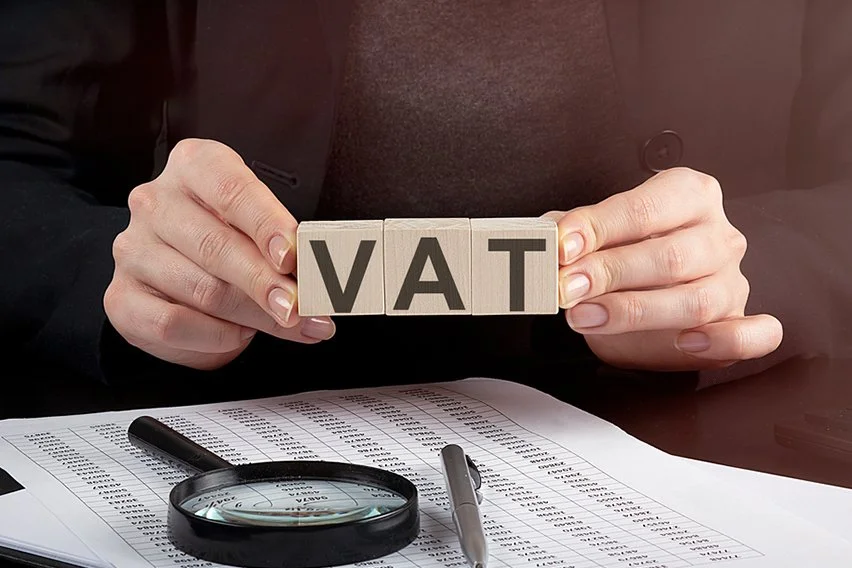This article explains whether builders pay VAT on materials for their work, which depends on the builder’s VAT status.
It covers VAT rates, recent changes, and how self-builders, contractors, and suppliers deal with VAT on building materials.
Do Builders Pay VAT on Materials?
Yes, builders are required to pay VAT on building materials they purchase.
They will then charge VAT on the full price of their work, including materials when invoicing customers.
The standard rate of VAT is 20% for most building work and materials.
Some materials can qualify for 5% VAT.
Builders registered for VAT can reclaim VAT paid on business purchases like materials.
Key Points
- Builders must pay 20% VAT when purchasing standard-rated building materials
- They will then charge customers VAT on the full price including materials
- VAT registered builders can reclaim VAT paid on business purchases
Our Opinion
As building industry experts, we know that VAT rules can seem complex for builders and customers.
However, VAT-registered builders are not out of pocket, as they can recover VAT paid on materials.
Customers pay VAT on the full job price, but this is claimable for commercial customers.
Understanding these VAT processes is key for builders and their customers.
How Much Is the VAT Rate for Materials?
For new-build homes, the zero VAT rate can apply to certain materials like roofing and windows. But the builder must follow strict rules to benefit from this. Most builders now invoice for labour only, without VAT, and leave customers to source materials separately.
Since March 2021, sub-contractors have also invoiced for labour only. This pushes VAT accountability onto the main contractor. But subbies must still issue a VAT invoice to evidence tax is due.
Some work, like home repairs, has a reduced 5% VAT rate. So builders doing this work can pass on less VAT on materials they supply.
Self-builders pay the full 20% VAT on materials they buy. But this is reclaimable if registered for VAT. They would still pay VAT on the builder’s labour though.
It’s now rare for merchants to sell trade materials VAT-free. So nearly all builders pay VAT upfront on what they purchase. They later recover this if VAT is registered. But VAT must always be charged correctly on final sales invoices to comply with HMRC rules.
When Can Builders Reclaim VAT on Materials?
VAT-registered builders can recover VAT paid on materials purchased for business use. This helps improve cash flow and avoid ‘VAT leakage‘ on costs.
To reclaim VAT, the builder must hold valid VAT invoices showing VAT charged. They can then claim this back through the normal VAT return process. The VAT can only be reclaimed on materials used for VATable work – where VAT is charged on sales.
Builders cannot reclaim VAT on purchases used for VAT-exempt work. Common examples include new home construction and residential conversion work. So VAT paid becomes a real cost here.
Some partially exempt builders use a special calculation to reclaim just a % of input VAT related to their taxable work. But this is complex to manage.
VAT on costs like commercial vehicles, tools and protective clothing can normally be fully reclaimed. Business expenses like advertising, accountancy fees and phone bills are also usually fully recoverable.
For VAT to be reclaimable, business purchases must be reasonable and business-related. Private use of goods or services purchased would limit how much VAT is recoverable.
Getting VAT invoices correct is key. They must show the supplier’s name, address and VAT number, place and date of supply, customer name and address, goods/services supplied, and VAT charged.
How Does the VAT Flat Rate Scheme Work for Builders?
The VAT Flat Rate Scheme is a simplified way for small builders to account for VAT. It can reduce their administrative burden and improve cash flow.
Builders charge VAT on sales as normal, but instead of reclaiming input VAT on purchases, they pay HMRC a fixed % of turnover as VAT. The rate depends on their trade sector – it’s currently 14.5% for general building work.
There are some key advantages to the Flat Rate Scheme:
- No need to track VAT on purchases – the fixed rate covers net VAT payable
- Boosted cashflow as input VAT not paid over until the VAT return
- Lower compliance burden compared to standard VAT accounting
To join the scheme, builders must expect taxable sales under £150,000 a year. Anti-avoidance rules prevent artificial set-ups to gain the VAT advantage.
The scheme isn’t right for every business. Builders unable to reclaim all input VAT may pay more VAT than on standard accounting. Exit charges apply if you leave within a year.
For many small builders, the simplicity and cash flow benefits make the Flat Rate Scheme worthwhile. It’s always advisable to consult specialised VAT accountants when considering this route.
What Building Jobs Are VAT Exempt?
While most building work is subject to VAT, there are some exceptions. Certain types of construction services are VAT exempt, meaning no VAT is charged on sales.
The main VAT exemptions for builders are:
- Constructing new buildings for residential use, such as houses, flats and bedsits
- Renovating or altering existing residential properties
- Converting non-residential properties into homes
These exemptions recognise that housing is an essential need. They help keep costs lower for home buyers and owners.
However, there are important caveats. The exemptions generally don’t apply to materials supplied alone. And work on communal areas of residential buildings, like hallways, remains standard-rated.
Exemptions also exist for building places of worship, and for converting buildings between residential and non-residential use. Specific rules apply in each case.
Checking if a construction job qualifies for VAT exemption can get complicated. Professional advice is recommended to avoid errors and penalties from HMRC. But when applicable, VAT exemption can provide a welcome cost saving for clients.
VAT Rules on Labour and Materials for Builders
VAT rules for builders are complex when it comes to labour and materials. While some construction work is VAT-exempt, supplies of materials are typically still liable for VAT.
For example, if you are converting a commercial unit into residential flats, your labour is VAT-exempt. However any materials purchased specifically for the job will have VAT added at the standard rate.
There are a couple of exceptions. For approved alterations to listed buildings, the supply of materials can also be zero-rated. For the construction of new residential buildings, building materials may be charged at a reduced VAT rate of 5%.
To benefit from the reduced rate on materials, strict conditions apply. The materials must be used in constructing a new residential building, and incorporated into the fabric of the property. The reduced rate also applies to conversion projects turning a non-residential building into a home.
With labour and materials treated differently for VAT, builders must keep clear records. You’ll need to account for VAT properly on sales invoices to clients. When reclaiming input VAT on purchases, you must determine the taxable status of labour and materials separately.
Professional advice can help builders navigate these complexities. Understanding the VAT implications allows you to quote clients accurately and remain compliant.
FAQ
Do I have to pay VAT on building materials?
Yes, VAT is charged on most building materials at the standard rate, which is currently 20% in the UK. Some materials may qualify for a reduced 5% VAT rate.
Do you put VAT on labour and materials?
VAT is usually charged on both labour and materials for construction work. The standard 20% rate applies to labour and most materials. Some building materials can qualify for 5% VAT.
What is VAT on building materials in the UK?
The standard rate of VAT on building materials in the UK is 20%. Certain materials like some insulation products qualify for a reduced VAT rate of 5%. New build homes are zero-rated for VAT.
Do you claim VAT back on materials?
If you are VAT registered, you can reclaim the VAT paid on materials purchased for business use. You claim the VAT back when you submit your VAT return. If you are not VAT registered, you cannot reclaim VAT.
Conclusion
In summary, builders are generally required to charge VAT on their work, including labour and materials. The standard rate is 20% VAT, but some building materials qualify for 5% VAT. New build homes are zero-rated. Subcontractors now invoice without VAT but indicate it is payable. Self-builders must pay VAT on materials upfront, but this can be reclaimed if registered. So most builders do pay and charge VAT on materials, but the system allows VAT-registered businesses to recover this tax.


